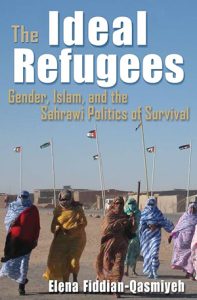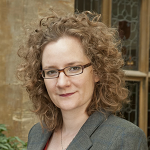The Ideal Refugees: Gender, Islam, and the Sahrawi Politics of Survival

Author: Elena Fiddian-Qasmiyeh
Publisher: Syracuse University Press
Year of Publication: 2014
Print Length: 360 pages
Genre: Non-Fiction / International Relations, Migration & Refugee Studies, Political Science, Social Science
Area: Western Sahara, Algeria, Cuba, Spain, South Africa, Syria
People: The Sahrawis, Muslim
Topic: Asylum & Asylum Seekers, Asylum & Refugee System, Refugees & Forced Migration, Camps, Gender, Woman and Femininity, Islam, Colonialism & Post-Colonialism, Deserving & Undeserving, Othering & Otherness, Humanitarian Action & Humanitarianism, Peace, Politics & Power, Social Network, Solidarity, Secularism, Social Work & Services, Social/Aid Workers, Survival, Resistance
Refugee camps are typically perceived as militarized and patriarchal spaces, and yet the Sahrawi refugee camps have consistently been represented as ideal in nature: uniquely secular and democratic spaces, characterized by gender equality. Drawing on extensive research with and about Sahrawi refugees in Algeria, Cuba, Spain, South Africa, and Syria, Fiddian-Qasmiyeh explores how, why, and to what effect such idealized depictions have been projected onto the international arena.
In The Ideal Refugees, the author argues that secularism and the empowerment of Sahrawi refugee women have been strategically invoked to secure the humanitarian and political support of Western state and nonstate actors, ensuring the continued survival of the camps and their inhabitants. This book challenges the reader to reflect critically on who benefits from assertions of good, bad, and ideal refugees, and whose interests are advanced by interwoven discourses about the empowerment of women and secularism in contexts of war and peace.
Table of Contents
List of Illustrations and Maps
List of Tables
Acknowledgments
Acronyms and Abbreviations
Introduction: The “Ideal’ Refugees
1. Engendering the Colonial Encounter
2. The Sahrawi Refugee Camps: International and Solidarity Networks
3. Emerging Discourse: Concealing Islam
4. Secular Sisters, Muslim Others, and the Politics of Survival
5. Discursive Silences, “Ideal Women”, and Directing Aid
6. Conclusion
Glossary
References
Index

Elena Fiddian-Qasmiyeh is the Co-Director of UCL (University College London)’s Migration Research Unit, and is the Founder and Director of the Institute of Advanced Studies Refuge in a Moving World research network across UCL. She is currently the PI of a multi-sited project funded by the European Research Council, South-South Humanitarian Responses to Displacement: Views from Lebanon, Jordan and Turkey (Southern Responses website). Between 2016-2021, she was PI of a 4-year AHRC-ESRC funded project, ‘Local Community Experiences of and Responses to Displacement from Syria‘ and between 2017-2020, she was joint PI of a 3-year project funded by the British Council-USA entitled Religion and Social Justice for Refugees. Elena is currently Co-I on the AHRC Network Plus programme, Imagining Futures through [Un]Archived Pasts, where she is jointly leading the Baddawi Camp Lab with Yousif M. Qasmiyeh. Her research examines experiences of and responses to conflict-induced displacement, with a particular focus on diverse forms of Southern-led responses to displacement and a regional focus on the Middle East and North Africa. She has conducted extensive research in refugee camps and urban areas including in Algeria, Cuba, Egypt, France, Jordan, Lebanon, South Africa, Syria, Sweden, and the UK.
Source: https://www.ucl.ac.uk/geography/elena-fiddian-qasmiyeh
More from Elena Fiddian-Qasmiyeh in this library, click here.
